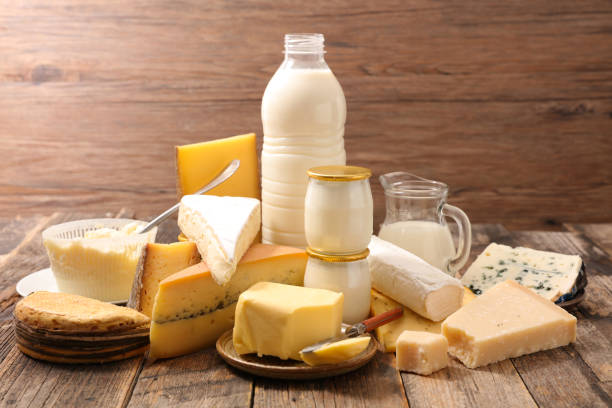
The Pros and Cons of Dairy: Should You Ditch It?
Share
Dairy has been a staple in many diets for centuries, praised for its rich nutritional content and versatility. However, in recent years, debates surrounding its health effects have led many to question whether they should continue consuming it or eliminate it altogether. While some tout dairy’s benefits for bone health and protein intake, others warn about lactose intolerance, inflammation, and potential ethical concerns. So, should you ditch dairy? Let’s take a balanced look at the pros and cons to help you decide.
The Pros of Dairy
Rich in Essential Nutrients
Dairy products are packed with essential vitamins and minerals, including calcium, vitamin D, and potassium, which are crucial for bone health, muscle function, and overall well-being. Milk, yogurt, and cheese provide high-quality protein, making them excellent choices for muscle repair and satiety.
Supports Bone and Dental Health
Calcium and phosphorus in dairy are key contributors to strong bones and teeth. Regular dairy consumption has been linked to a reduced risk of osteoporosis and fractures, particularly in older adults. Fortified dairy products also provide vitamin D, which enhances calcium absorption.
Probiotic Benefits from Fermented Dairy
Fermented dairy products like yogurt and kefir contain probiotics, which promote gut health by supporting beneficial bacteria. A healthy gut microbiome is linked to improved digestion, enhanced immunity, and even mental well-being.
The Cons of Dairy
Lactose Intolerance and Allergies
Many people experience lactose intolerance, a condition where the body lacks the enzyme needed to break down lactose, leading to bloating, gas, and digestive discomfort. Additionally, some individuals have dairy allergies, which can trigger more severe reactions, including respiratory issues and skin rashes.
Potential Links to Inflammation and Acne
Some studies suggest that dairy consumption, particularly from cow’s milk, may contribute to inflammation in certain individuals. This has been associated with acne breakouts and exacerbation of conditions like arthritis and irritable bowel syndrome (IBS). However, the evidence remains mixed and varies from person to person.
Ethical and Environmental Concerns
Dairy farming raises concerns about animal welfare and environmental impact. The dairy industry contributes to greenhouse gas emissions, deforestation, and water consumption. Many people choose plant-based alternatives for ethical and sustainability reasons.
The decision to consume or ditch dairy ultimately depends on your personal health, dietary needs, and ethical values. While dairy offers valuable nutrients and health benefits, it may not be suitable for everyone due to lactose intolerance, potential inflammatory effects, or sustainability concerns. If you’re considering cutting dairy, explore nutrient-rich alternatives like almond, soy, or oat milk to ensure you maintain a balanced diet. Whether you embrace dairy or opt for a plant-based lifestyle, making informed choices that align with your health and values is key.
Get more knowledge about eating healthy, please refer to The Anti-Inflammatory Kitchen.
